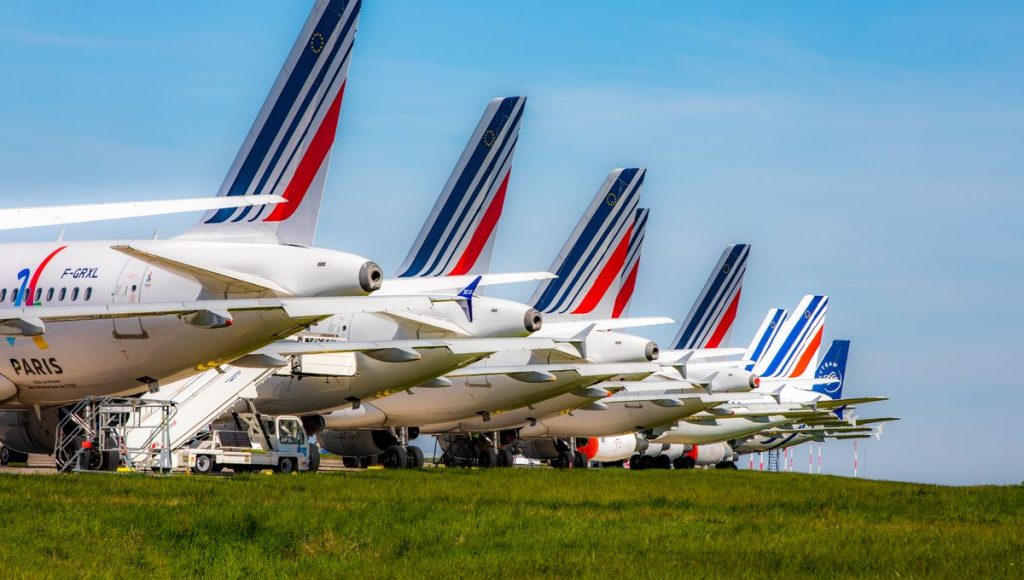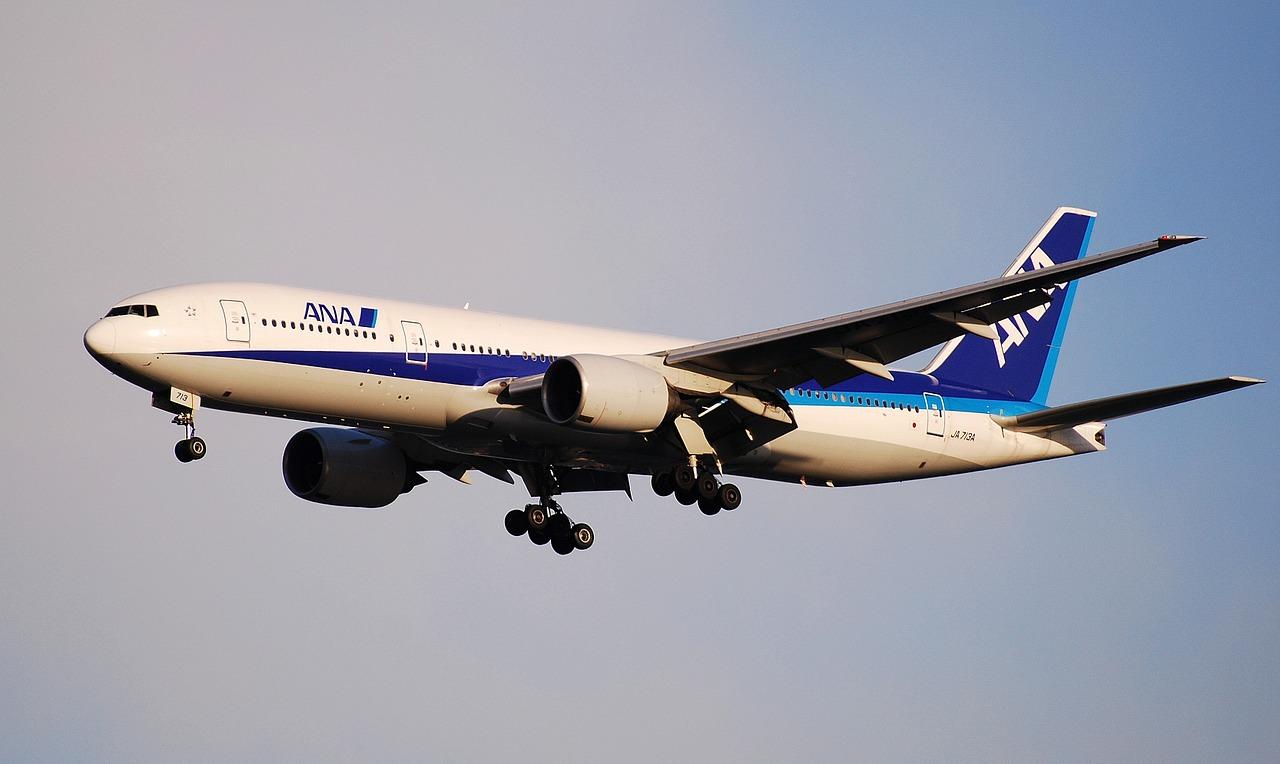The aircraft manufacturing industry is undergoing a period of profound transformation. Confronted with growing environmental concerns, increased market expectations, and a need for enhanced operational efficiency, aircrThe aircraft manufacturing industry is undergoing a period of profound transformation within the broader context of the global aerospace industry. Confronted with growing environmental concerns, increased market expectations, and a need for enhanced operational efficiency, aircraft manufacturers are reimagining their approach to production. At the heart of this evolution lies a strong focus on innovation, sustainability, and digitalization. The convergence of these trends is not only redefining how aircraft are built, but also how global aerospace players remain competitive in an increasingly demanding market.
In this evolving context, Globalsys, a leader in aviation communication systems, plays a vital role. By delivering secure and reliable wireless communication solutions, Globalsys supports aircraft manufacturers in achieving higher levels of coordination, safety, and productivity across complex production environments. The airplane manufacturing industry is crucial in the global market, driven by rising air travel and advancements in production technology.
Aerospace Industry
The global airline industry significantly impacts the aircraft manufacturing sector, with projected growth and booming demand for air travel.
Introduction to the Aerospace Industry
The aerospace industry is a complex and highly competitive sector that encompasses the design, development, and manufacture of aircraft, spacecraft, and missiles. Driven by rapid advancements in technology and an increasing demand for air travel, the industry is constantly evolving to meet the needs of efficient and safe transportation. The global aircraft manufacturing market is a significant component of this industry, with major players such as Boeing and Airbus leading the charge. These companies dominate the market by continuously innovating and improving their manufacturing processes to stay ahead of the competition.
Fuel efficiency and supply chain management are critical factors influencing the industry. As air travel becomes more accessible and affordable, the demand for new aircraft continues to rise. To meet this growing demand, aircraft manufacturers must invest heavily in research and development, ensuring they can deliver cutting-edge solutions that meet stringent regulatory standards. In this highly competitive industry, staying ahead requires a relentless focus on innovation and adaptability.
Market Overview
The global aircraft manufacturing market is projected to reach $476.4 billion by 2031, growing at a compound annual growth rate (CAGR) of 5% from 2022 to 2031. This growth is primarily driven by the increasing demand for commercial aircraft, particularly in the Asia-Pacific region, where air travel is becoming more accessible and affordable. The rise of low-cost carriers and the expansion of airline networks in emerging markets are significant contributors to this trend.
Business aviation is also experiencing growth, with companies like Gulfstream and Bombardier offering high-end private aircraft to meet the needs of corporate clients. The aerospace industry is a major contributor to the global economy, generating substantial revenue and creating numerous employment opportunities. However, the industry faces several challenges, including significant disruptions to the supply chain, financial challenges, and the need to adhere to strict safety standards. Navigating these challenges requires strategic planning and robust risk management practices.
Top Players
The top players in the aircraft manufacturing market include industry giants such as Boeing, Airbus, Lockheed Martin, and Raytheon Technologies Corporation. These companies have established themselves as leaders through a strong focus on research and development, advanced manufacturing techniques, and exceptional customer service. Boeing and Airbus dominate the commercial aircraft market, consistently delivering innovative solutions to meet the needs of airlines worldwide.
In the defense sector, Lockheed Martin and Raytheon Technologies Corporation are major players, providing advanced military aircraft and defense systems. Other notable companies in the industry include Gulfstream, Bombardier, and Embraer, which offer a range of commercial and business aircraft. The aircraft manufacturing market is highly competitive, with companies vying for market share by improving efficiency, reducing costs, and delivering superior products and services.
Major trends reshaping the aircraft manufacturing industry
The aerospace sector is rapidly integrating the principles of Industry 4.0 to streamline manufacturing processes. The shift is powered by several key innovations:
- Digital manufacturing tools like digital twins and simulation platforms allow for real-time design validation and reduce costly rework.
- Automation and robotics are replacing repetitive, labor-intensive tasks on assembly lines, enhancing precision while lowering the risk of human error. These technologies can also help increase production rates by speeding up the manufacturing process.
- Additive manufacturing (3D printing) enables the creation of complex, lightweight components that reduce material waste and support more aerodynamic aircraft designs.
- AI-driven analytics optimize supply chains, forecast component demand, and improve scheduling for both production and maintenance. These technologies also help improve safety in manufacturing processes by allowing for better data analysis and decision-making.
In highly collaborative environments, seamless and secure communication between engineering, quality control, and logistics teams is essential. Globalsys’ full-duplex wireless headsets ensure real-time, interference-free communication, helping reduce delays and boosting productivity in dynamic manufacturing environments.
Substantial investment in skilled labor is essential for implementing these advanced technologies, ensuring sustained growth and innovation in the aerospace sector.
Product innovations driving a new generation of aircraft
Aircraft manufacturers are investing in groundbreaking technologies and architectures to meet both economic and environmental performance targets. The airplane manufacturing market, valued at over $424 billion, is expected to grow significantly in the coming years. Among these innovations:
- Composite materials are increasingly used for fuselage and wing structures to reduce aircraft weight and fuel consumption.
- Hybrid and electric propulsion systems are gaining traction, especially in regional and short-haul aircraft segments, offering lower emissions and reduced operating costs. These systems are also being applied to passenger aircraft, enhancing their efficiency and sustainability.
- Blended-wing bodies and laminar flow designs are pushing the boundaries of aerodynamics. Narrow body aircraft remain crucial in the market, catering to various operational demands in commercial aviation.
- Manufacturers are forming R&D alliances with suppliers, defense agencies, and aerospace startups to accelerate time to market and de-risk new technologies. Wide body aircraft play a significant role in these alliances, given their importance in international trade and air cargo services.
Globalsys enhances these innovation ecosystems by supporting test environments with reliable wireless communication tools. From initial assembly to ground testing and flight trials, secure voice and data communication is vital for real-time decision-making and safety compliance.
Supply Chain
The supply chain is a critical component of the aircraft manufacturing industry, involving a complex network of suppliers and manufacturers that provide raw materials, components, and systems. Globalization has led companies to source materials and components from around the world, enhancing efficiency but also introducing vulnerabilities. Natural disasters, economic downturns, and trade wars can significantly disrupt the supply chain, impacting production schedules and delivery timelines.
To mitigate these risks, companies are increasingly leveraging advanced technologies such as artificial intelligence and machine learning. These technologies enable better supply chain management by predicting potential disruptions, optimizing inventory levels, and improving overall efficiency. Effective supply chain management is essential for meeting customer demand and maintaining the high standards required in the aircraft manufacturing industry.
Environmental challenges and sustainable manufacturing in the aircraft industry
The industry’s push toward decarbonization is creating a surge of innovation across the aircraft lifecycle. Initiatives include:
- The adoption of Sustainable Aviation Fuels (SAF) and the exploration of hydrogen-powered propulsion. The industry is making significant strides in fuel efficiency and emissions reduction.
- The development of urban air mobility (UAM) vehicles like electric vertical take-off and landing (eVTOL) aircraft, leveraging space technology to advance these innovations.
- Implementation of eco-efficient production techniques, such as waste reduction, energy optimization, and greener materials. Space systems also play a crucial role in sustainable manufacturing by providing advanced technology and systems for efficient production.
Meeting these objectives requires full visibility and control across the supply chain. Wireless communication systems, like those developed by Globalsys, play a key role in real-time coordination between suppliers, engineers, and production planners—ensuring just-in-time operations and reducing inefficiencies that can increase environmental impact.
Furthermore, reducing aircraft turnaround times through enhanced communication also directly contributes to emissions reduction. Globalsys supports this by facilitating fluid interactions between ground crews, maintenance teams, and operational control centers.
The aircraft manufacturing industry stands at the crossroads of innovation and sustainability. Emerging technologies, digital integration, and environmental imperatives are pushing aerospace players to adapt rapidly. In this high-stakes environment, clear and secure communication is not a luxury—it’s a necessity.
By providing mission-critical wireless communication systems, Globalsys enables aerospace manufacturers to respond to the challenges of modern aircraft production with agility, efficiency, and precision. Whether supporting the assembly of next-generation aircraft, improving safety protocols, or streamlining ground operations, Globalsys is committed to empowering the aerospace sector as it builds the future of flight. The anticipated growth in the industry over the next decade underscores the importance of these advancements.
Regulatory Framework
The aircraft manufacturing industry operates within a stringent regulatory framework designed to ensure safety and performance standards are met. Government agencies such as the Federal Aviation Administration (FAA) set these regulations, requiring companies to comply with rigorous safety standards. Additionally, environmental regulations related to fuel efficiency and emissions are becoming increasingly important as the industry seeks to reduce its environmental impact.
Navigating this complex regulatory landscape requires significant resources and expertise. Companies must invest in compliance to ensure their products meet all necessary standards, which can be both challenging and costly. However, the regulatory framework also provides a level playing field, ensuring that all companies compete fairly and maintain high safety and performance standards.





